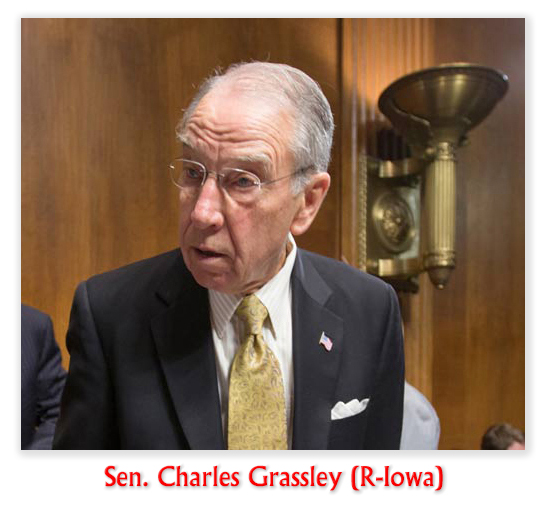We post news and comment on federal criminal justice issues, focused primarily on trial and post-conviction matters, legislative initiatives, and sentencing issues.
CRACK REFORM COMETH… BUT IT’S TEMPORARY AND DOESN’T HELP ANYONE ALREADY LOCKED UP
Attorney General Merrick Garland has instructed federal prosecutors to end disparities in the way they charge offenses involving crack cocaine and powder cocaine.
 The change, outlined in two internal memos released by the Dept of Justice on Friday, is a “win for criminal justice reform advocates, who point out that the current sentencing regime has led to the disproportionate incarceration of Black Americans since the policy was adopted nearly 40 years ago,” Reuters said.
The change, outlined in two internal memos released by the Dept of Justice on Friday, is a “win for criminal justice reform advocates, who point out that the current sentencing regime has led to the disproportionate incarceration of Black Americans since the policy was adopted nearly 40 years ago,” Reuters said.
The new policy will take effect within 30 days. It does not apply retroactively. This means anyone sentenced under the harsher 18;1 ratio has no way to have his or her sentence adjusted to reflect what Congress now believes is fair.
The memos argue that “the crack/powder disparity in sentencing has no basis in science, furthers no law enforcement purposes, and drives unwarranted racial disparities in our criminal justice system.” Garland instructed prosecutors to treat “crack cocaine defendants no differently than for defendants in powder cocaine cases” when charging defendants and making sentencing recommendations.
They also instruct prosecutors to reserve charges involving mandatory minimums to situations with certain aggravating factors, such as leadership, possession of a gun, gang membership, or a history of violence.
“Today’s announcement recognizes this injustice and takes steps to finally strike parity between powder and crack cocaine sentences,” Sen Cory Booker (D-NJ), a sponsor of the EQUAL Act (S.79), said in a statement.
 But Sen. Charles Grassley (R-IA), whose SMART Cocaine Sentencing Act (S.4116) – introduced last summer – is responsible for derailing the EQUAL Act, was displeased. “A bipartisan group of lawmakers, including myself, just recently came to an agreement on statutory changes that could possibly be included in the year-end funding bill,” Grassley said in a statement. “That hard-won compromise has been jeopardized because the attorney general inappropriately took lawmaking into his own hands. The administration could have engaged in the real and lasting legislative process, but opted for flimsy guidance that will disintegrate when this administration leaves office.”
But Sen. Charles Grassley (R-IA), whose SMART Cocaine Sentencing Act (S.4116) – introduced last summer – is responsible for derailing the EQUAL Act, was displeased. “A bipartisan group of lawmakers, including myself, just recently came to an agreement on statutory changes that could possibly be included in the year-end funding bill,” Grassley said in a statement. “That hard-won compromise has been jeopardized because the attorney general inappropriately took lawmaking into his own hands. The administration could have engaged in the real and lasting legislative process, but opted for flimsy guidance that will disintegrate when this administration leaves office.”
Although Garland’s new charging policy has no retroactive effect, Ohio State University law professor Doug Berman noted in his Sentencing Law and Policy blog that “federal law does provide at least one possible means for Garland’s memo to retroactively apply to some previous crack convictions: AG Garland could have prosecutors bring, and vocally and consistently support, motions for sentence reductions under 3582(c)(1)(A) for crack offenders who are still serving unduly long and unfair crack sentences based in the unjust disparity.”
Reuters, U.S. Justice Department moves to eliminate cocaine sentencing disparity (December 16, 2022)
Washington Post, Garland moves to end disparities in crack cocaine sentencing (December 17, 2022)
Dept of Justice, General Department Policies Regarding Charging, Pleas, and Sentencing (December 16, 2022)
Dept of Justice, Additional Department Policies Regarding Charging, Pleas, and Sentencing in Drug Cases (December 16, 2022)
BBC, US to end crack and powder cocaine sentencing disparity (December 16, 2022)
Press Release, Grassley Statement On Justice Department’s Usurpation Of Legislative Authority, Disregard For Statutes As Written On Cocaine Prosecutions (December 16, 2022)
Sentencing Law and Policy, US Attorney General Garland releases new federal charging guidelines that include instructions to treat crack like powder cocaine (December 16, 2022)
– Thomas L. Root

